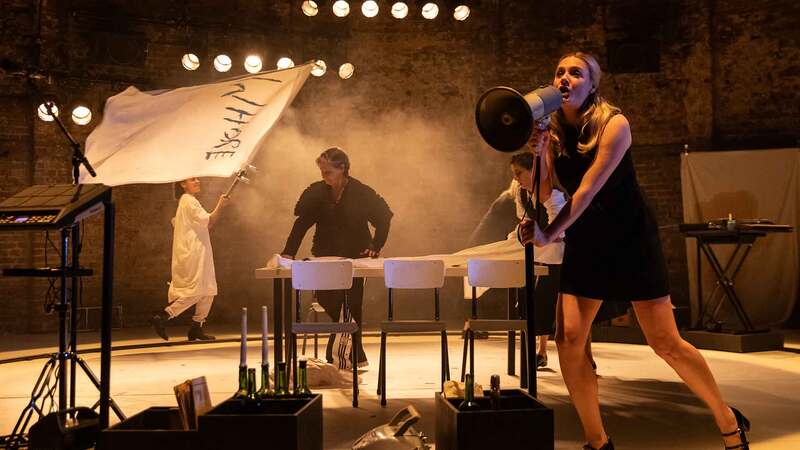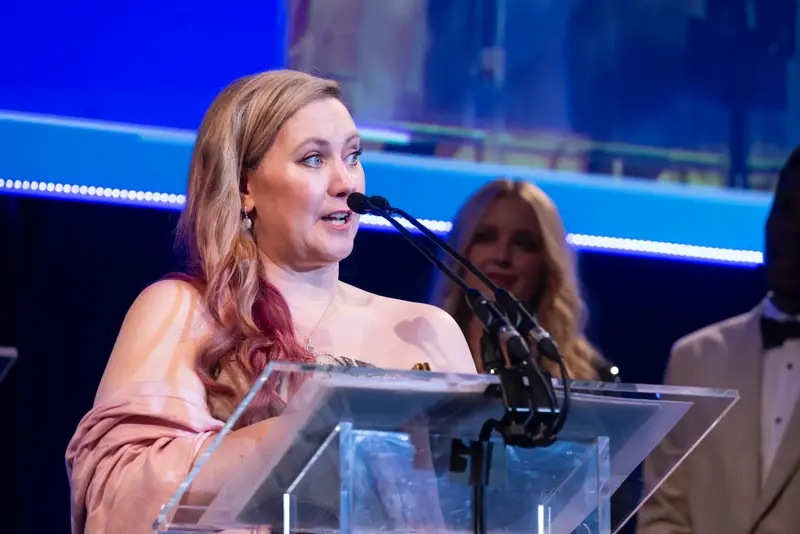You are viewing your 1 free article this month. Login to read more articles.
Shooting Salmon
Paul Torday was 59, with a career as a successful businessman behind him, when his debut novel Salmon Fishing in the Yemen became a surprise hit in 2007. A deceptively light, humorous story of the fanciful plan by a wealthy Yemeni sheikh to bring salmon fishing to his home country, assisted by buttoned-up British fisheries scientist Dr Alfred Jones and attractive young consultant Harriet Chetwode-Talbot, Torday’s novel was in fact a wryly satirical snapshot of the tail-end of Tony Blair’s PR-spun Britain, imaginatively told through a variety of characters and styles.
Keeping the book’s engaging, satirical tone fresh in the post-Blair world certainly presented a challenge to anyone attempting to adapt it for the big screen. The task eventually fell to acclaimed screenwriter Simon Beaufoy, best known for having written The Full Monty, and more recently Slumdog Millionaire – an adaptation of Vikas Swarup’s novel Q & A for which he won an Academy Award in 2009. Beaufoy’s adaptation of Torday’s book focuses the story more closely on the relationship between Alfred Jones and Harriet Chetwode-Talbot, played by Ewan McGregor and Emily Blunt, while also crafting a deliciously OTT character for Kristin Scott-Thomas as the no-nonsense Government Press Officer Bridget Maxwell.
James Bell: How much was adapting the novel
a collaborative process?
Simon Beaufoy: Not at all – this is actually the first time we’ve met!
Paul Torday: When I first met with Paul Webster, the film’s producer, I said I didn’t want to be very involved at all. Some authors, I’m told, get really excited and want to go to every script conference and all the rest of it, but I thought it would be a better film if I were to stay away from it.
SB: That’s extremely wise of you. I’ve always been very frank with writers I’ve adapted and suggested they stay away, because it can seem quite brutal; but because it’s such a different medium you have to be quite brutal with the material. Attempting to transpose a novel from page to screen is a sure-fire way of making a poor film. You’re not respecting the novelist by doing a faithful adaptation. It’s such a misnomer anyway, that term ‘faithful adaptation’. Slumdog Millionaire was so different from the book, but it had the same joie de vivre, and I hope the film of Salmon Fishing has that same eccentric, slightly sardonic edge to it. I always promise to keep the tone and the heart of their story the same, but everything else is up for grabs.
JB: The book has an epistolary construction, told through emails, interviews, diary excerpts…
SB: It makes it incredibly fast and engaging to read. But it must have been nightmare to write?
PT: It was, but I had no idea just what a bind
I’d got myself into, to get a sense of narrative
drive while trying to condense it into emails,
diary excerpts and so on.
SB: My respect to the epistolary tone was just at the beginning, when Fred and Harriet are writing letters to each other.
PT: But that’s great, because immediately people think, yes, this is the book I read.
JB: Simon, do you have a standard approach you take when you come to adapt any book?
SB: Almost everything else doesn’t matter apart from finding the central conceit or tone, and it was particularly the tone of Salmon Fishing that I loved. I found it very forgiving of human nature, while at the same time looking it square in the face and making jokes about it. But satire is very dangerous in films – it dates very quickly. I decided early
on that I was going to lessen the satire in favour
of the love story.
JB: Alfred and Harriet are moved to the centre
of the story in the film, and Alfred even gets to
be a hero.
SB: I’ve learned over the years that it’s good for the lead character in a film to be doing things, to be motivating everything around him. I once wrote a really nice film that never got made, and eventually I worked out that it was because the lead character was incredibly passive. He was like the still point of a turning world, and it killed it dead. Films need forward momentum – they’re not called the movies for nothing.
JB: Fred opens up in a number of ways – professionally, in his infatuation with Harriet and to the importance of faith and belief.
SB: In that very English way he’s channelling all sorts of complex emotional issues into something practical – fly-fishing! That’s the joy of the book, and hopefully the film: it’s about working your way out of turmoil though a gentlemanly conduit.
PT: When they were casting the film, they were looking for somebody in his forties, because that’s the age of the character in the book, but I suggested to Paul Webster that really it was about a young fogey, and I think Ewan McGregor captures that brilliantly. What you do in the film to bring that out, which I really liked, were riffs like the one about the sandwiches, where Fred tries to console Harriet by making her a sandwich. He’s giving something of himself to somebody else for the first time in ages, and he does it via a sandwich!
SB: Some of the few lines that are verbatim from the book are about faith. When Fred writes in his diary, “Instead of going to church, Mary and I go to Tesco together on Sundays,” it’s very funny but also somehow spiritually appalling.
JB: The film makes the press officer character, Peter Maxwell, into a woman named Bridget Maxwell – played with relish by Kristin Scott Thomas.
SB: It was a male character in early drafts, and every time people read it they went, “It’s The Thick of It.” In the end, in that very lazy way writers have when they’re looking for a solution, I thought, “I’ll make the character a woman and see what happens,”
and it separated it from that very male world of Peter Mandelson and Alastair Campbell.
PT: In the book the character is a rather neurotic man, who bursts into tears when the PM is unkind to him. In the film the female press officer is much more robust and over the top. I very much enjoyed that transformation. People who read books have such preconceived ideas of the characters that it’s a strength to be different enough that people can enjoy the whole thing over again.
JB: Some of the characters in the book have been given more prominence, such as Harriet’s soldier fiancé Robert, who returns dramatically after having been presumed killed in action.
SB: I don’t think the film would have worked if Robert hadn’t returned. There was nothing visual onscreen that would have stopped the very pretty Emily Blunt and very handsome Ewan MacGregor from getting together.
PT: Absolutely, I understand that. In the book Harriet becomes locked up in her grief and incapable of moving on, but that would have been quite dull on screen. The fact of having to make a choice between the two men at the eleventh hour was a way of keeping the tension up.
JB: Simon, do you prefer writing original screenplays or adaptations?
SB: I really enjoy the process of adapting because when I’m given free rein I feel like I’m bringing
a lot of myself and my technique to bear on an already wonderful idea.
PT: When I was emailed the first draft of the screenplay I remember thinking, this file is only so many megabytes! But then you read the screenplay and realise that a lot of what is spelled out in words in the book is going to be created by what the actors do, or what the director does, as well as the screenwriter does. I wasn’t that keen on reinventing myself as someone who knows about movies, so I’ve decided to concentrate on writing novels, and if any of the others are filmic then we’ll see… The Girl on The Landing has been optioned and Julian Fellowes has done a screenplay for it. I don’t know where that will go, but the screenplay is a good one.
Salmon Fishing in the Yemen is in cinemas from 20 April.















